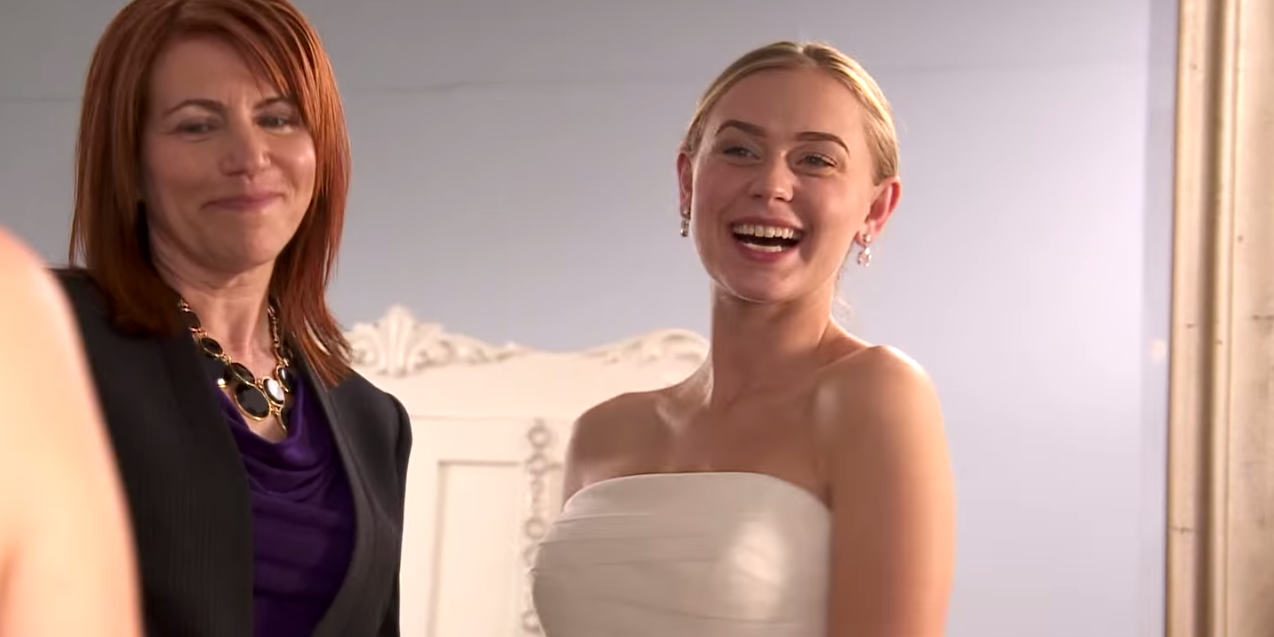Last week, the College Republican National Committee (CRNC) released a set of ads aimed at young women voting for governor in six states. If you haven’t seen them already, take a moment to watch this representative ad for Arkansas:
Videos by Rare
[youtube https://www.youtube.com/watch?v=m_sAkicHGyI&w=560&h=315]
As this ad (and its five siblings) began to make internet rounds, it was almost immediately the subject of derision. Viewers noted that the tone was condescending, even sexist. As one typical review said, “Voting is hard, right ladies? Luckily, the College Republican National Committee is here to help put things in terms we’ll understand: wedding dresses.”
Soon, commentators on the right started playing defense. They highlighted a leftwing video put out by Cosmopolitian (yes, the magazine you probably know better as the source of “1000 Crazy Ways to Use a Can Opener in Your Sex Life” articles) in which a young woman parodies a makeup tutorial video while discussing politics. It’s hypocritical, so the arguments went, to criticize the CRNC video while lauding the one from Cosmo.
But as much as I have no love for Cosmo, here’s the key difference between the two: The Cosmo ad actually contains specific facts and policy suggestions. They may be facts we’d like to dispute (like whether or not women are only paid 78 percent of what men are paid) and policy suggestions we’d like to debate (like the effects of the minimum wage), but they’re undeniably there.
The format is silly; but to Cosmo’s credit, it gives the audience specific information they can research and concludes by encouraging the target demographic—young women—to get engaged in politics and not “let other people speak for you.”
But the CRNC videos? Not so much.
Each one offers only the vaguest possible critiques of the candidates they oppose, like suggestions that he’ll bring higher taxes or cause people to lose their jobs.
Ok, that’s scary, CRNC. And you may well be right. But how will this happen? Can you offer any specifics at all?
Because I don’t know about other young women, but pretty dresses are not enough to make me give someone my vote.
The fact that only ten seconds of each minute-long ad is even customized by state (beyond switching out the names) does not bode well. Indeed, I’d suggest that any campaign ad which can be used in six different states with minimal modification is by definition embarrassingly simplistic and condescending. And if that ad is exclusively targeted at young women—and there’s no similarly patronizing ad campaign made for young men—then, yes, it’s also sexist.
Now, like many viewers, I assumed on first seeing this ad that it must have been created by old men. The formula of “stuff girls like” + “our candidate’s name repeated a bunch of times” seemed too laughable to countenance any other authorship.
But then I happened upon this tweet from the chair of the CRNC, one Alexandra Smith. Sharing a photo of five ladies, she wrote, “And just so we’re clear, these are the strong, talented women who wrote the @CRNC’s ‘Say Yes’ ads!” Smith’s announcement was retweeted by the official CRNC Twitter account in an apparent reply to those who assumed unfairly, like I did, that the ad must have been made by men.
Unfortunately for the CRNC, this revelation only makes matters worse. Because while a condescending, content-free ad made by a musty old GOP media strategist would be bad enough, a condescending, content-free ad made by five women of my own generation is a far more significant problem.
Given their work in politics, I can only guess that these five ladies would not support a candidate based on vague assertions about a “trusted brand,” “new ideas,” and “old styles.” I can only guess that they, like me, require more concrete issue statements and consider a broad range of topics. In short, I can only guess that they make voting decisions like real, thoughtful women do.
So why do they expect the rest of us to be content with platitudes? Why are we supposed to just “Say Yes” after hearing a few context-free numbers and being reminded that we, too, have watched guilty pleasure TV?
To borrow a phrase from Smith: Just so we’re clear, condescension is just as off-putting when it comes from strong, talented women as when it comes from strong, talented men.
The CRNC prides itself on being the “oldest political youth organization in the United States.” I can’t speak to the age of the organization, but if these ads are any indication, there is indeed something very old at the CRNC: its stale, establishment politicking which is more interested in hanging on to political power than making real progress for freedom, peace, and prosperity. And no amount of slick parody ads will make young people “say yes” to that.



